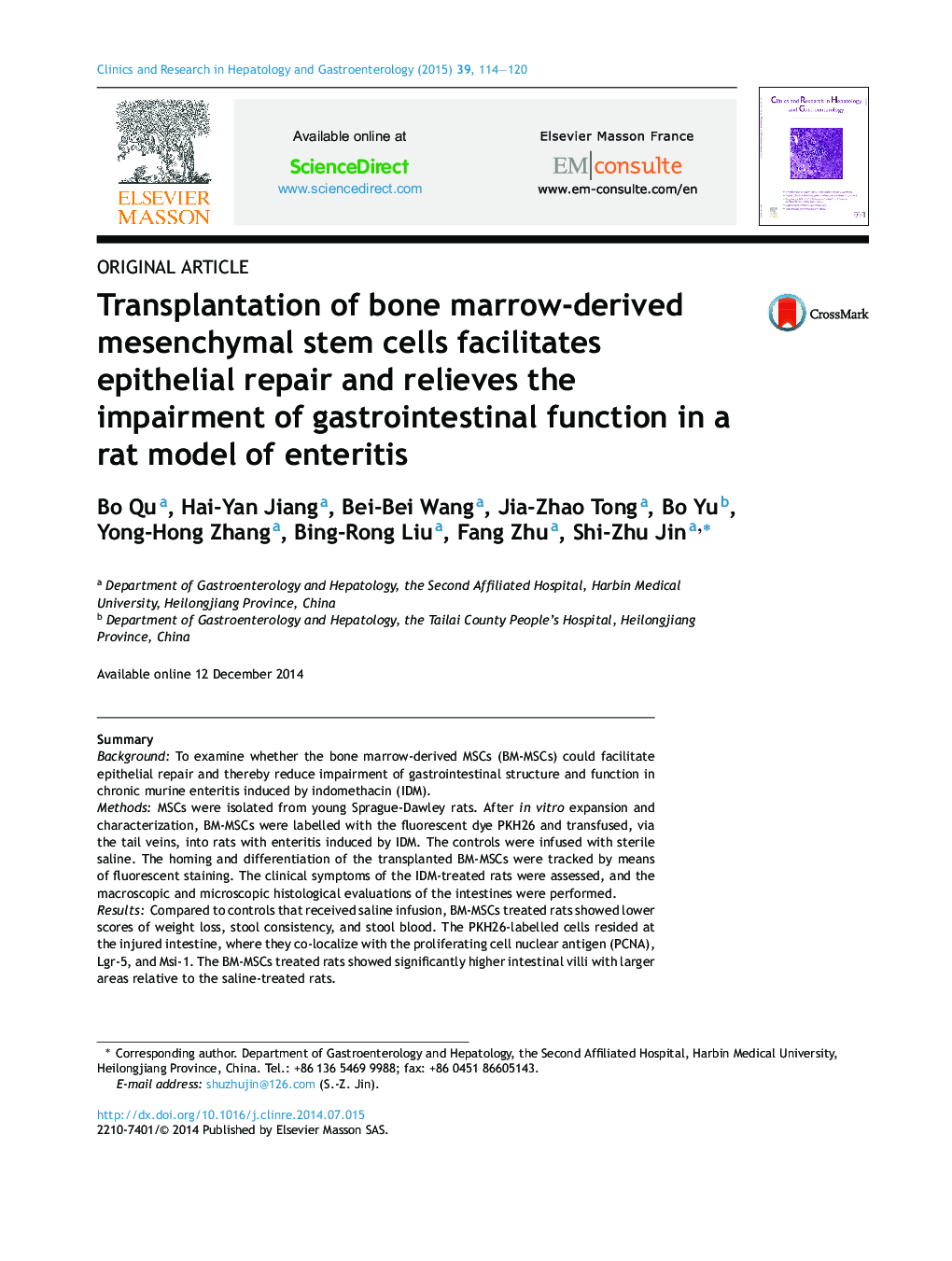| Article ID | Journal | Published Year | Pages | File Type |
|---|---|---|---|---|
| 3286248 | Clinics and Research in Hepatology and Gastroenterology | 2015 | 7 Pages |
SummaryBackgroundTo examine whether the bone marrow-derived MSCs (BM-MSCs) could facilitate epithelial repair and thereby reduce impairment of gastrointestinal structure and function in chronic murine enteritis induced by indomethacin (IDM).MethodsMSCs were isolated from young Sprague-Dawley rats. After in vitro expansion and characterization, BM-MSCs were labelled with the fluorescent dye PKH26 and transfused, via the tail veins, into rats with enteritis induced by IDM. The controls were infused with sterile saline. The homing and differentiation of the transplanted BM-MSCs were tracked by means of fluorescent staining. The clinical symptoms of the IDM-treated rats were assessed, and the macroscopic and microscopic histological evaluations of the intestines were performed.ResultsCompared to controls that received saline infusion, BM-MSCs treated rats showed lower scores of weight loss, stool consistency, and stool blood. The PKH26-labelled cells resided at the injured intestine, where they co-localize with the proliferating cell nuclear antigen (PCNA), Lgr-5, and Msi-1. The BM-MSCs treated rats showed significantly higher intestinal villi with larger areas relative to the saline-treated rats.ConclusionThe transplanted BM-MSCs are able to recognize the injured intestine, where they proliferate and transdifferentiate into intestinal stem cells which repair the injured intestinal tissues. Therefore, BM-MSCs are able to relieve the impairment of gastrointestinal function in IMD-treated rats.
